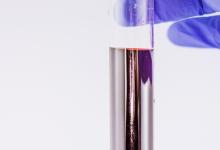Expert Perspectives on SLE Pathophysiology and the Importance of Changing the Course of Disease Save
Dr. Anca Askanase, Professor of Medicine and Director of the Lupus Center, Division of Rheumatology, Columbia University takes us through the pathophysiology of SLE and explains why it's important to understand the immunologic mechanisms of SLE, so we can better address this complex disease.1,2
Dr. Askanase is joined by Dr. Rajeev Raghavan, Nephrologist and Clinical Professor of Medicine at the University of Houston College of Medicine, to discuss the benefits of establishing a definition for SLE disease modification and why, given its progressive nature, there is a need to try to change the course of disease and consider therapies that modify the immunologic mechanisms of SLE from diagnosis onward. 3
References:
- Pan L, et al. Immunological pathogenesis and treatment of systemic lupus erythematosus. World J Pediatr. 2020 Feb;16(1):19-30. doi: 10.1007/s12519-019-00229-3.
- Gottschalk TA, et al. Pathogenic Inflammation and Its Therapeutic Targeting in Systemic Lupus Erythematosus. Front Immunol. 2015 Oct 28;6:550. doi: 10.3389/fimmu.2015.00550.
- van Vollenhoven R, et al. Conceptual framework for defining disease modification in systemic lupus erythematosus: a call for formal criteria. Lupus Sci Med. 2022; 9(1):e000634. doi: 10.1136/lupus-2021-000634.
Please click here to view full infographic








